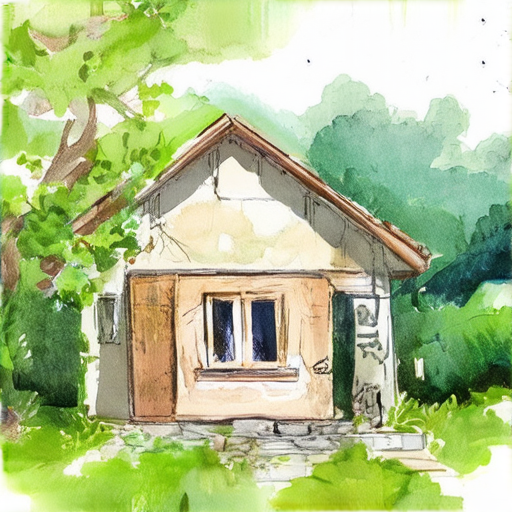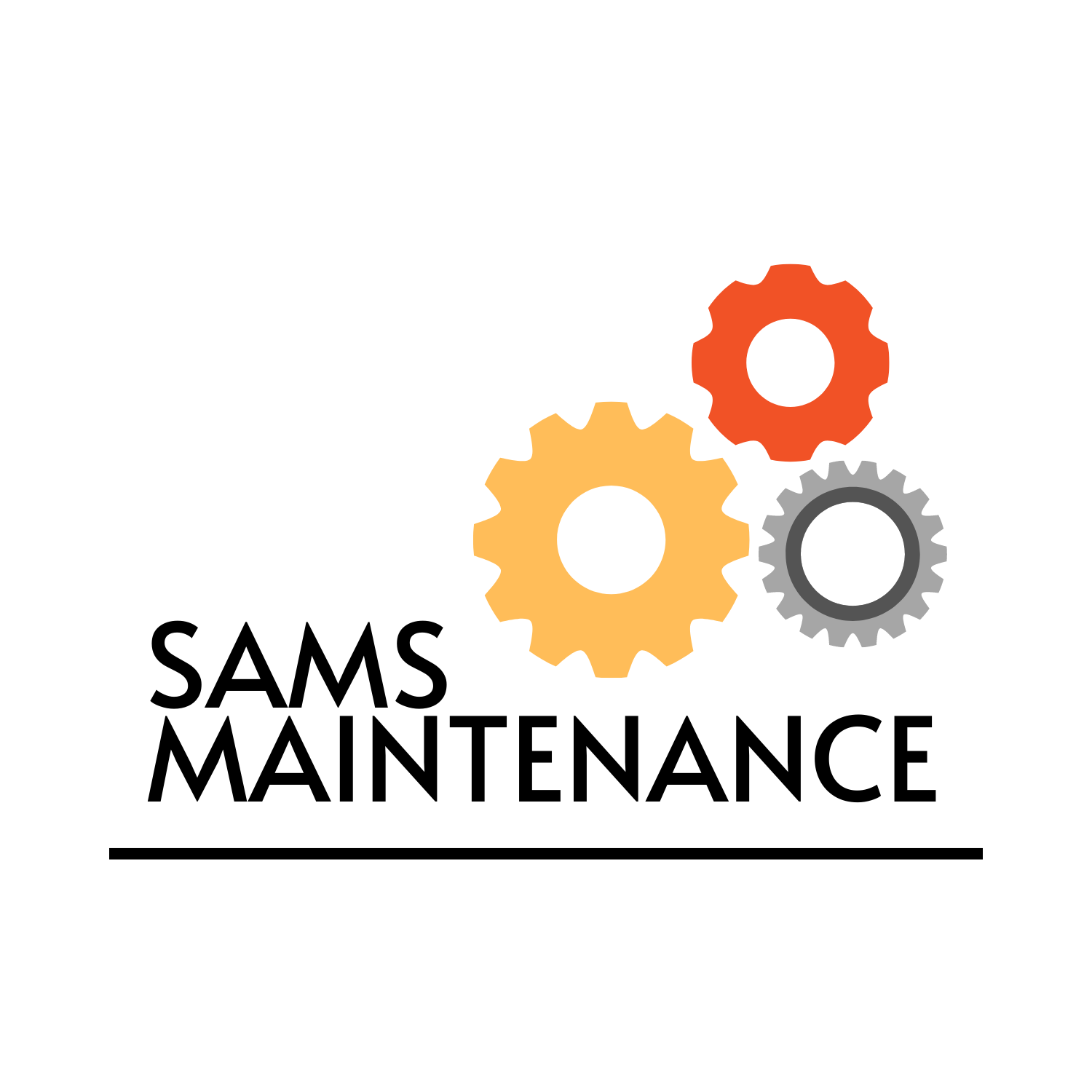As homeowners, we’re constantly looking for ways to save money and reduce our environmental impact, but often find ourselves caught up in the cycle of hiring professionals for even the smallest of tasks. However, with a little bit of knowledge and the right tools, it’s entirely possible to take control of your household maintenance and repairs, saving you both time and money in the process.

Slash Expenses and Minimize Your Eco-Footprint with DIY Household Maintenance
Discover how to take control of your home’s upkeep and reduce your environmental impact by implementing these effective DIY household maintenance tips.
-
Assess Your Home’s Needs
Start by evaluating your home’s maintenance requirements, focusing on tasks that need immediate attention, such as leaky faucets, clogged drains, or worn-out door handles.
-
Create a Maintenance Schedule
Develop a routine schedule to tackle regular tasks, like changing air filters, cleaning gutters, and inspecting roof tiles, to prevent costly repairs and extend the lifespan of your home’s components.
-
Learn Basic Repair Skills
Acquire fundamental repair skills, such as plumbing, electrical work, and carpentry, to handle minor issues and save money on professional labor costs.
-
DIY Projects for Energy Efficiency
Implement energy-saving projects, like installing low-flow showerheads, weatherstripping doors, and adding insulation to walls and attics, to reduce your carbon footprint and lower utility bills.
-
Upcycle and Repurpose Materials
Get creative with upcycling and repurposing materials, transforming old items into functional pieces, like turning an old pallet into a planter or creating a headboard from reclaimed wood.
-
Reduce Waste and Implement Recycling
Minimize waste by adopting a recycling program, composting food scraps, and reusing containers, bags, and other materials whenever possible.
-
Maintain Your Yard and Garden
Care for your lawn, plants, and trees by mulching, pruning, and watering efficiently, reducing water consumption and minimizing chemical usage.
-
Monitor and Control Pests
Prevent pest infestations by sealing entry points, removing standing water, and using natural deterrents, like essential oils and diatomaceous earth, to keep your home pest-free.
-
Stay Informed and Educated
Continuously update your knowledge on DIY techniques, sustainable living, and eco-friendly products through online tutorials, workshops, and local community events.
-
Join a Community of Like-Minded Individuals
Connect with fellow DIY enthusiasts and environmentally conscious individuals through online forums, social media groups, or local meetups to share experiences, ask questions, and learn from others.
-
Evaluate and Adjust Your Approach
Regularly assess your progress, adjusting your approach as needed to optimize your DIY household maintenance routine and minimize your environmental impact.
By embracing these DIY household maintenance tips, you’ll not only save money but also contribute to a more sustainable future for yourself and your community.
Essential DIY Projects and Tasks Every Homeowner Should Know
Elevate your home ownership experience by mastering these fundamental DIY projects and tasks, saving time and money while boosting property value.
-
1. Basic Plumbing Repairs
Learn to fix leaky faucets, unclog drains, and replace worn-out washers to prevent water damage and save on utility bills.
For more information on plumbing repair techniques, visit our plumbing repair tips page.
-
2. Electrical System Maintenance
Understand how to inspect and replace circuit breakers, install GFCI outlets, and troubleshoot electrical issues to ensure a safe living environment.
Discover more about electrical safety and maintenance on our electrical safety tips page.
-
3. HVAC System Cleaning and Maintenance
Learn to clean and maintain your heating, ventilation, and air conditioning systems to optimize energy efficiency and extend their lifespan.
Find out more about HVAC system cleaning and maintenance on our HVAC maintenance tips page.
-
4. Roof Inspection and Repair
Know how to identify and repair roof leaks, damaged shingles, and missing flashing to prevent costly water damage.
Get expert advice on roof inspection and repair on our roof inspection and repair page.
-
5. Pest Control and Extermination
Learn to identify and eliminate common pests, such as termites, rodents, and cockroaches, to protect your home and family’s health.
Discover effective pest control methods on our pest control methods page.
-
6. Drywall Repair and Installation
Master the art of repairing and installing drywall to fix holes, cracks, and dents, and create a smooth finish.
Get step-by-step instructions on drywall repair and installation on our drywall repair and installation page.
-
7. Painting and Decorating
Learn to prepare surfaces, apply paint, and decorate walls to give your home a fresh new look and boost its resale value.
Find inspiration and expert advice on painting and decorating on our painting and decorating tips page.
-
8. Flooring Installation and Repair
Know how to install and repair various types of flooring, such as hardwood, tile, and carpet, to enhance your home’s aesthetic appeal and durability.
Get professional guidance on flooring installation and repair on our flooring installation and repair page.
-
9. Appliance Repair and Maintenance
Learn to diagnose and fix common appliance issues, such as leaky refrigerators and faulty dishwashers, to save on replacement costs.
Discover troubleshooting tips and repair techniques on our appliance repair tips page.
-
10. Yard Work and Landscaping
Master the basics of yard work, including mowing, pruning, and fertilizing, to create a beautiful and functional outdoor space.
Get expert advice on yard work and landscaping on our yard work and landscaping tips page.

Effective DIY Household Maintenance Techniques for Beginners
As a homeowner, taking care of your property can seem daunting, but with the right knowledge and skills, you can master essential DIY household maintenance techniques to save time and money.
-
Leaky Faucet Fix
A leaky faucet may seem like a minor issue, but it can waste gallons of water per day, increasing your water bill and wasting this precious resource. To fix a leaky faucet, turn off the water supply, disassemble the faucet, and replace the worn-out parts.
-
Energy-Efficient Upgrades
Upgrading to energy-efficient appliances and lighting fixtures can significantly reduce your utility bills and minimize your carbon footprint. Consider replacing incandescent bulbs with LED lights and installing low-flow showerheads and toilets.
-
Caulk and Weatherstrip Repair
Sealing gaps around windows and doors with caulk and weatherstripping can prevent air leaks, reduce drafts, and keep your home warm in winter and cool in summer. Inspect your home’s exterior and interior for gaps and cracks, and apply caulk and weatherstripping accordingly.
-
Pest Control
Preventing pest infestations requires regular cleaning, decluttering, and sealing entry points. Keep your kitchen counters clean, store food in sealed containers, and seal any holes or cracks around pipes and vents.
-
Drain Cleaning
Clogged drains can cause backups and damage your plumbing system. Use a plunger or plumber’s snake to clear clogs, and consider using a drain screen to catch hair and debris before they enter the drain.
-
Painting and Touch-ups
Maintaining your home’s appearance requires regular painting and touch-ups. Choose a high-quality paint and primer, and apply thin coats to avoid drips and uneven finishes.
-
DIY Repairs
Learning basic DIY repair skills can save you money and give you a sense of accomplishment. Practice fixing loose screws, tightening loose joints, and replacing worn-out parts.
-
Seasonal Upkeep
Regular seasonal upkeep ensures your home remains safe and functional throughout the year. Check and replace air filters, inspect gutters and downspouts, and prepare your home for extreme weather conditions.
-
Home Safety Inspection
A thorough home safety inspection can identify potential hazards and prevent accidents. Check electrical outlets, smoke detectors, and carbon monoxide detectors, and ensure your home meets local building codes and regulations.
-
Waste Management
Proper waste management involves recycling, composting, and reducing waste. Implement a recycling program, compost food scraps, and reduce paper usage to minimize your environmental impact.
-
Emergency Preparedness
Being prepared for emergencies requires a well-stocked emergency kit, a plan for evacuation, and knowledge of basic first aid. Assemble a kit with essentials like flashlights, batteries, and non-perishable food, and stay informed about local emergency procedures.
By mastering these essential DIY household maintenance techniques, you’ll save time, money, and stress, while keeping your home safe, functional, and beautiful.

Mastering Simple and Cost-Effective DIY Household Maintenance
Tackle common household issues with ease by mastering these simple and affordable DIY maintenance tasks.
-
1. Leaky Faucet Repair
Learn how to fix a leaky faucet in just a few minutes with our step-by-step guide. This easy DIY task can save you money on your water bill and reduce waste.
-
2. Clogged Drain Unclogging
Don’t let clogged drains ruin your day. Our DIY drain unclogging method uses simple tools and techniques to get your pipes flowing freely again.
-
3. Loose Door Hinge Fix
A loose door hinge can be frustrating, but fixing it is easier than you think. With our DIY guide, you’ll have your doors hanging smoothly in no time.
-
4. Faulty Light Switch Replacement
Replacing a faulty light switch is a simple DIY task that requires minimal tools and expertise. Learn how to do it safely and efficiently.
-
5. Cracked Tile Repair
Cracked tiles can be unsightly, but repairing them is a breeze. Our DIY guide shows you how to fix cracked tiles and restore your bathroom or kitchen to its former glory.
-
6. Wobbly Shelf Stabilization
A wobbly shelf can be hazardous, but stabilizing it is a simple DIY task. Learn how to secure your shelves and prevent accidents.
-
7. Clogged Air Filter Replacement
A clogged air filter can increase your energy bills and reduce airflow. Replacing it is a simple DIY task that requires minimal effort.
-
8. Dripping Ceiling Fix
A dripping ceiling can be alarming, but fixing it is often simpler than you think. Our DIY guide shows you how to identify and repair common causes of ceiling leaks.
-
9. Faulty Outlet Replacement
Replacing a faulty outlet is a simple DIY task that requires minimal tools and expertise. Learn how to do it safely and efficiently.
-
10. Pest Control Prevention
Pests can cause significant damage to your home, but preventing them is easier than you think. Our DIY guide shows you how to seal entry points and keep pests out.
By mastering these simple and cost-effective DIY household maintenance tasks, you’ll save money, reduce stress, and enjoy a safer, healthier living space.
For more DIY tips and tricks, visit HomeAdvisor or Lowe’s for expert advice and product recommendations.
At Sams Maintenance, we’re committed to helping you tackle common household issues with ease. Check out our blog for more DIY tutorials, home maintenance tips, and expert advice.
Top DIY Household Maintenance Tips and Tricks
Tackle everyday household issues without overspending or harming the planet with our expert DIY household maintenance tips, from leaky faucet fixes to natural pest control methods.
-
Leaky Faucet Fix
Identify the source of the leak and replace worn-out parts or gaskets to save water and money. Check out our guide on Fixing Leaky Faucets for step-by-step instructions.
-
Natural Pest Control Methods
Use diatomaceous earth, essential oils, or homemade traps to eliminate pests without harsh chemicals. Learn how to make your own Natural Pest Control Sprays and keep your home pest-free.
-
DIY Home Repairs
Save money by fixing common household issues yourself, such as creaky doors, loose hinges, and wobbly tables. Get started with our DIY Home Repair Guide.
-
Seasonal Upkeep
Maintain your home’s exterior and interior during different seasons with our Seasonal Upkeep Tips. From spring cleaning to winterizing your pipes, stay ahead of the game.
-
Preventative Maintenance
Schedule regular check-ups and maintenance tasks to prevent costly repairs down the road. Discover the importance of Preventative Maintenance and learn how to implement it in your daily routine.
-
Energy Efficiency
Reduce your energy consumption and lower your bills with simple DIY projects, such as adding insulation, sealing air leaks, and upgrading to energy-efficient lighting. Explore our Energy Efficiency Tips and start saving today.
-
Water Conservation
Conserve water and reduce your water bill with easy DIY solutions, such as installing low-flow fixtures, using rain barrels, and implementing xeriscaping. Find out how to Conserve Water and make a positive impact on the environment.
-
Home Organization
Maximize your storage space and declutter your home with clever DIY organization solutions, such as building shelving units, repurposing old furniture, and utilizing vertical space. Get inspired by our Home Organization Ideas and transform your living space.
-
Emergency Preparedness
Be prepared for unexpected events with a well-stocked emergency kit, a backup power source, and a plan for evacuation. Stay safe and informed with our Emergency Preparedness Tips.

Safe and Effective DIY Methods for Fixing Common Household Issues
As a homeowner, dealing with common household issues can be frustrating and costly. However, there are many safe and effective DIY methods that can help you fix these problems without breaking the bank or compromising indoor air quality.
-
Inspect and Maintain Your Home’s Plumbing System
Leaky faucets, clogged drains, and burst pipes can cause significant water damage and lead to costly repairs. Regularly inspect your plumbing system, check for leaks, and replace worn-out parts to prevent these issues.
For more information on how to inspect and maintain your home’s plumbing system, visit our plumbing maintenance guide.
-
Seal Air Leaks and Insulate Your Home
Air leaks can cause your heating and cooling systems to work harder, leading to increased energy bills and reduced efficiency. Seal air leaks around windows, doors, and ducts, and consider adding insulation to your attic, walls, and floors.
Learn more about how to seal air leaks and insulate your home in our energy efficiency guide.
-
Clean and Replace Your HVAC Filters
Dusty and dirty HVAC filters can reduce airflow, increase energy consumption, and compromise indoor air quality. Clean or replace your filters regularly to ensure optimal system performance and air quality.
Find out how to clean and replace your HVAC filters in our HVAC maintenance guide.
-
Check and Replace Your Smoke Detector Batteries
Dead smoke detector batteries can fail to detect potential fires, putting you and your loved ones at risk. Check and replace your smoke detector batteries regularly to ensure your home is protected.
Learn more about how to check and replace your smoke detector batteries in our fire safety guide.
-
Prevent Pest Infestations
Pests like rodents, ants, and cockroaches can contaminate food, spread diseases, and damage your home’s structure. Seal entry points, store food properly, and consider hiring a pest control professional to prevent infestations.
Discover how to prevent pest infestations in our pest control guide.
-
Maintain Your Home’s Electrical System
Flickering lights, blown fuses, and electrical shocks can indicate underlying issues with your home’s electrical system. Regularly inspect your wiring, outlets, and switches, and hire a licensed electrician if you’re unsure about any aspect of your electrical system.
Learn more about how to maintain your home’s electrical system in our electrical maintenance guide.
-
Keep Your Gutters Clean and Clear
Clogged gutters can cause water damage, foundation problems, and pest infestations. Regularly clean and clear your gutters to ensure proper water flow and prevent these issues.
Find out how to keep your gutters clean and clear in our gutter maintenance guide.
-
Conduct Regular Home Inspections
Regular home inspections can help you identify potential issues before they become major problems. Look for signs of wear and tear, check for leaks, and inspect your home’s foundation, roof, and walls.
Learn more about how to conduct regular home inspections in our home inspection guide.
By following these safe and effective DIY methods, you can fix common household issues without breaking the bank or compromising indoor air quality. Remember to always prioritize your safety and the integrity of your home’s systems and structures.

0 Comments